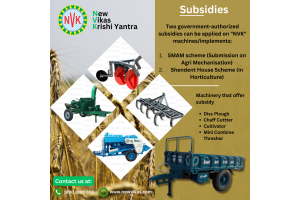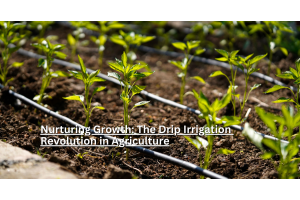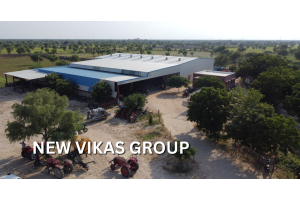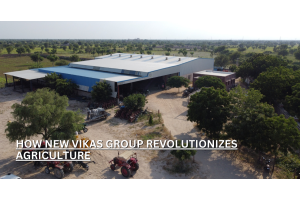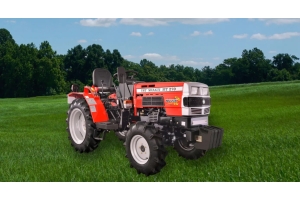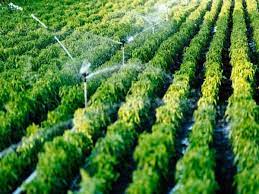
Introduction
Water is a precious resource, and its efficient use is vital for sustainable farming practices. In this blog post, we will delve into the world of agricultural irrigation and explore strategies for maximizing water efficiency on the farm. By implementing these techniques, farmers can not only conserve water but also improve crop yields and reduce environmental impact. So, let's become irrigation insiders and unlock the potential of efficient water management in agriculture.
1. Understanding Irrigation Efficiency:
To maximize water efficiency, it's essential to comprehend the concept of irrigation efficiency. It refers to the ratio of water applied to a field to the amount of water that plants effectively use. Several factors influence irrigation efficiency, including irrigation methods, equipment, soil type, crop type, and climate conditions. By optimizing these factors, farmers can minimize water waste and maximize crop production.
2. Choosing the Right Irrigation Method:
Selecting an appropriate irrigation method is crucial for water efficiency. Different methods such as flood irrigation, sprinkler irrigation, and drip irrigation have varying levels of efficiency. Drip irrigation, for example, delivers water directly to the plant's root zone, minimizing evaporation and runoff. Understanding the pros and cons of each method will help farmers make informed decisions to suit their specific needs.
3. Utilizing Sensor Technology:
Advancements in sensor technology have revolutionized irrigation management. Soil moisture sensors, weather stations, and evapotranspiration (ET) sensors provide valuable data on soil moisture levels, weather patterns, and crop water requirements. By utilizing this technology, farmers can make informed decisions on when and how much to irrigate, ensuring water is used efficiently and avoiding overwatering or underwatering.
4. Implementing Irrigation Scheduling:
Developing an effective irrigation schedule is key to maximizing water efficiency. It involves considering factors like crop type, growth stage, weather conditions, and soil moisture levels. By aligning irrigation with plant needs, farmers can avoid unnecessary water usage and prevent water stress or nutrient leaching. Automated irrigation controllers can simplify scheduling, ensuring precise and timely water application.
5. Optimizing Irrigation System Design:
Efficient irrigation system design plays a significant role in water conservation. Proper layout, correct pipe sizing, and regular maintenance are essential for minimizing water loss due to leaks, evaporation, or inefficient distribution. Regular inspections, repairs, and upgrades will help ensure the system operates at peak efficiency, delivering water precisely where it's needed.
6. Adopting Precision Farming Techniques:
Precision farming integrates technology and data-driven approaches to optimize agricultural practices. By employing techniques such as variable rate irrigation (VRI), farmers can deliver water precisely according to the crop's specific needs, accounting for field variability. This targeted approach minimizes water waste and maximizes water-use efficiency, leading to improved crop yields and reduced input costs.
7. Managing Crop Selection and Rotation:
Crop selection and rotation strategies can also contribute to water efficiency. Planting drought-tolerant or low-water-demand crops can help conserve water resources. Additionally, rotating crops can break pest and disease cycles while promoting soil health and reducing water-related issues. Strategic planning of crop selection and rotation ensures optimal water use and sustainable agricultural practices.
Conclusion:
Water efficiency in agriculture is a critical aspect of sustainable farming. By becoming irrigation insiders and implementing the strategies discussed in this blog post, farmers can maximize water efficiency, conserve resources, and improve overall productivity. Embracing advanced technologies, optimizing irrigation methods, adopting precision farming techniques, and managing crop selection are steps towards a more sustainable and water-conscious agricultural future. Let's work together to safeguard our water resources and ensure a prosperous farming industry.

